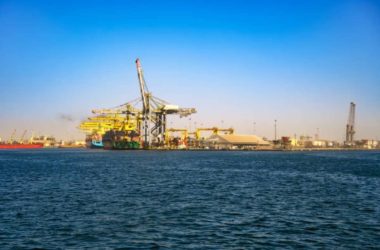
Why were our National Assembly members elected? To problem-solve like a leader, NOT to solve issues quick-fix style. They were elected primarily for one purpose – to do the heavy thinking.
It is their job to do some critical, creative, empowering, and visionary thinking and translate those thoughts into plans and action that transforms people’s lives and aspirations.
Most of our National Assembly members are well-educated and internationally exposed, and now they have the power and platform to push for things like campaign finance reforms and end money-pit traditions that enforce a cycle of poverty, so why they do that!
The Gambia’s public debt has increased threefold over the last five years to 71.3 billion and The Gambia’s current total debt both domestic and external amounted to D 71.3 billion (88 percent of GDP) and the increase of D9.4 billion on National Debt Service from 2019 to 2020 which represents (approximately 37.5 percent of total tax, loans, and grants revenue) on debt services the highest increase since President Adama Barrow won elections in late 2016. Although official data shows that the economy is growing, the tax base is not expanding, and revenue is falling short as debt service charges are rising.
As leaders and lawmakers, their job is figuring out how to increase national wealth, not how to sustain being a walking social welfare ATM and approving prolificacy of D47 million loans without thinking of the consequences of unsustainable public debt the Gambia is facing.
It is difficult not to describe the Gambia as an underworld – a world of vampires. Our government secured the approval of D47 million from the National Assembly, but only a few lawmakers from the hallowed scrutinized, queried, and challenged the loan agreement as well as after conditional approval.
Nominated member Yakumba Jaiteh and members from the People’s Democratic Organization for Independence and Socialism (PDOIS) refused to endorse any profligacy. Our prudent president Adama Barrow endorsed the profligacy.
Every passing day, our problems assume more frightening dimensions. Productivity is sinking, the tax to GDP ratio is laughable, borrowing has increased so much as to threaten growth and economic viability. None of these discourages the kleptocrats, and there is no let-up in the stealing of public funds.
It should be obvious now that in search of saviors, the afflicted has run from scammers to swindlers. It is challenging to know whom to trust again.
Moreover, here I remember Price Warung’s ‘Tales of the Early Days’ and his description of the underworld as that place where the ‘good’ man is the notorious criminal; the ‘bad’ man is the one who seeks to act honestly and purely. Our nation is that underworld where proper and improper usage of powers and privileges go together like the monk and the hood.
Robert Louis Stevenson wrote many exciting novels and essays. One of them is Treasure Island – a gripping story of pirates, rum, and blood. I will not use that storyline to describe our National Assembly and what they do with the mandates they hold. At least, not yet.
Even R.L. Stevenson did not say legislators were pirates, but in another of his works, he said: “We all know what Parliament is, and we are all ashamed of it.” What did he see, know, or smell that made him get ashamed of the parliament of his days? Whatever it was could not be as shameful as what we live with here.
Let us start from that figure – D47million. Someone said, “it is not the lie that annoyed me but the insult to my intelligence.” How was that figure arrived at? Halifa Sallah and Yakumba Jaiteh queried Mambury Njie, Minister of Finance and Economic Affairs.
I am sure that our lawmakers are surprised we have not asked this question. We stopped asking questions a long time ago because we are a conquered people – and persons in captivity do not query their snatchers. Even if we dare ask any question, we are sure to get no answer because, as said again by Stevenson, “the cruelest lies are often told in silence.”
The underworld has its accounting principles lacking in scruples but precise in its figures. It is not difficult to see that this forty-seven million translates to millions of dalasi per region.
When we add the Capital city Banjul to it, the account is balanced. Can we see now that on the dining table of the Gambia, the powerful is sharing out the collective meat with his teeth of larceny? When we see this, they say it is God’s judgment that will deliver justice here.
Our ‘borrow-borrow’ government has voted D47 million for the financing (Loan) agreements between the Government of The Gambia and the International Fund for Agricultural Development (IFAD) for the Resilience organization for a transformational fund for Agricultural (Roots).
That is a vote for 58 big men and women. Our government believes it has been fair, and it voted D 47 million for 2 million Gambians for financing “Agricultural development for Resilience organization for Transformational Fund for Agricultural Roots.”
Please stop defending this in the name of politics. We cannot insist that the regime is as good as excellent in running our affairs with this debauched profligacy. Webster’s dictionary says ‘profligacy’ means “recklessly extravagant or wasteful in use of resources.” That cannot be an edifying description for any leader and leadership.
Nevertheless, the word has another meaning: “licentious; dissolute.” Do not ever think there is a gap between the two meanings. They both denote – and connote awful news. The first will always lead to the second; the wasteful is dissolute.
When lousy behavior festers unchallenged, it becomes bold and audacious. Furthermore, we are surprised that our lawmakers and their bosses in the Statehouse did not know (and did not ask) how Tortoise got his ugliness. That creature became the carrier of a broken shell because he was a thief who stayed too long and stole too much for the farm owner to meet and smash him against his wall.
Our good men, borrowing and misspending the funds, running the country into a sea of debts risk a future of ugliness. Moreover, this is not a curse.
 The legislature should not be a coven of witches holding orgiastic meetings, “where the devil himself is in full swing.”
The legislature should not be a coven of witches holding orgiastic meetings, “where the devil himself is in full swing.”
Nevertheless, the National Assembly is making it look like it occupies that world that is above all forms of a good leash. It is making it look like the previous lawmakers were timid in the perfidy pinned on them; that their badness was just not courageous enough to do direct debiting of the public till.
The refuge of the timid was in unexecuted or badly executed constituency projects. These new ones are of the 21st century – savvy and bold, and so, they insist they must directly spend D47 million repairing a structure that is not broken.
A whirl of a wooly, indirect, and direct assault on the economy has been around the country for some time. The situation gets desperate now. Between an estimated revenue of total revenue and grants for 2020 is estimated at D24.5 billion, and expenditure budget constitutes 25 percent of GDP, and 3.2 percent fall from D25.3 billion budgeted in 2019, constituting 29 percent of GDP.
Total expenditure increased slightly by 1.3 percent from D13.6 billion to D13.8 billion in same period 2020, while current expenditure increased by 1.5 percent from D7.7 billion (126 percent of tax revenue) in the first nine months of 2018 to D8.9 billion (117 percent of tax revenue) in the same period 2019 in the 2020 budget signed by President Adama Barrow, there is a fiscal deficit of He stated, “In 2020 project grants and budget support are budgeted at D8.1billion and D2.7 billion respectively.
Governments’ fiscal deficit is projected to increase slightly from a deficit of D3.5 billion (4 percent of GDP) in 2019 to a budget deficit of D3.9 billion (3.9 percent of GDP) in 2020” According to the budget.
The D47 million we are talking about is likely to come from borrowed funds – from the money of the future.
Profligacy, excessive borrowing, unsustainably high debt level, and misapplication of funds, earned and unearned, are all the wealthy needs to wreck himself. When a government goes the same way and ignores fiscal rectitude, it destroys the state. That is the point we are at now.
However, we are clapping for the wreckers, playing politics, condoning our legislators’ incompetence, their deliberate misdiagnosis of our situation, and the malpractices that define their patriotism.





